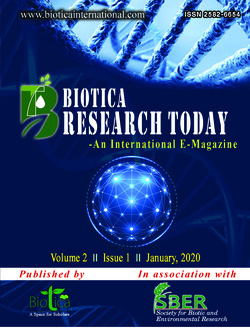
Superior Usability of Rice Bran: In Search of the Best out of Waste!
Udit Nandan Mishra*
Dept. of Biochemistry and Agricultural Chemistry, Assam Agricultural University, Jorhat, Assam (785 013), India
Ranjan Kandali
Dept. of Biochemistry and Agricultural Chemistry, Assam Agricultural University, Jorhat, Assam (785 013), India
DOI: NIL
Keywords: Bran, Lipolytic enzyme, Nutritional loss, Proteomics
Abstract
Bran is a milling byproduct of rice. Rice bran is underutilized due to lipolytic enzyme mediated rancidity and its subsequent associated nutritional loss. Bran layer can serve as a source of novel lipolytic enzymes (lipase, esterase, lipoxygenase) which can be purified in order to exploit its catalytic property for industrial application and value addition to the underutilized rice bran layer. To do so traditional bran stabilization has to be avoided in order to safeguard both the nutritional properties and novel lipolytic enzymes. Instead of using bran as only cattle feed or consumable oil extraction, proteomics analysis can be performed to explore the superior usability of enzyme mediated commercial product development which can also serve as an alternative to microbial lipolytic enzymes.
Downloads
not found
Reference
Enochian, R.V., Saunders, R.M., Schultz, W.G., Beagle, E.C., Crowley, P.R., 1980. Stabilization of rice bran with extrusion cookers and recovery of edible oil: a preliminary analysis of operation and financial feasibility. Marketing Research Report 1120. ARS. USDA. Western Regional Research Center, Albany, CA.
FAOSTAT, 2012. The Statistics Devision of the Food and Agriculture Organization of the United Nations. http://www.faostat.fao.org.
Sharif, M.K., Butt, M.S., Anjum, F.M., Khan, S.H., 2014. Rice bran: A novel functional ingredient. Nutrition and Food Science 54(6), 807-816.
